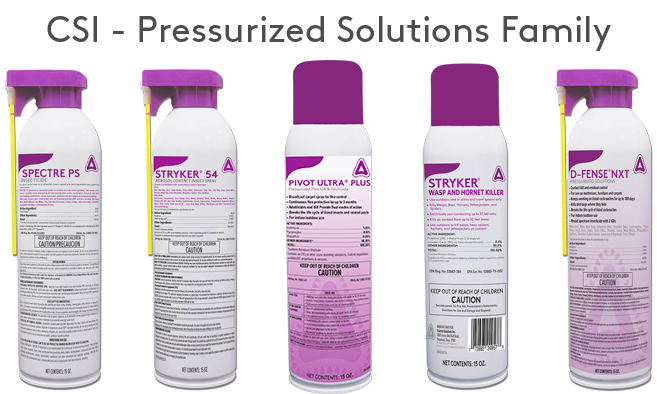The holiday season is over, and many people have begun looking towards the new year by setting resolutions, such as healthier living, stop procrastinating, or building a better work/life balance. We at CSI hope you found time over the holidays to enjoy time with your friends and family; now we hope to help you make a few new year’s resolutions related to your business!

How long has it been since you and your company really looked at, assessed and evaluated your current pest management protocols. Are they timely and up to date? Are you using the most effective, modern, and best formulated products you can? Are your application methods in compliance with the current label restrictions? Are there treatment methods you are currently using that could be updated/changed to be more effective? This is the perfect time of year to consider these types of things and make minor or even major adjustments.

Now is the time to prepare for the dreaded regulatory inspections. Check your training files for each of your employees and be sure its complete and current. Organize your service tickets (if you have them), your contracts, and other paperwork that may be less than perfectly organized. This is also a great time to go through any paperwork laying around the office and determine if it needs to be kept, updated or discarded.

Along the same lines as preparing for your inspections, consider a little early spring cleaning. How long does your regulatory agency require you to keep records? If you have paperwork and other files beyond the required time, consider discarding/shredding/recycling it and/or saving it electronically.

How long have you been rotating in the same insecticides for general pest control? What about bait for rodent management? Or have you considered CSI's new Pressurized Solutions line of products? As a general rule, PMPs should rotate not only brand names but active ingredients in their pest management programs for optimum results. Additionally, mode of action of each pesticide should be considered in a product rotation program. The website irac-online.org has a tremendous amount of downloadable and printable material for PMPs to utilize. This material can help make these very important decisions regarding product rotation!

Of course, each year PMPs must maintain their licenses with continuing education, but have you considered taking the next step in your career? The National Pest Management Association has the Quality Pro accreditation for your business. By visiting npmaqualitypro.org you can find more information. Quality Pro sets the standards of excellence for professional pest management companies and their employees through education, training and certification, providing consumers protection and confidence when selecting a nationally accredited company. For individual certification, the Entomological Society of America offers their Associate Certified Entomologist program (ACE) which has become the benchmark for professionalism in the pest management industry. Find more information at www.entsoc.org/ace-certification There are also many opportunities for online classes through distributors, universities and private companies.
Whatever the 2019 year brings, we at CSI are here to make sure it is a happy, healthy and prosperous one for your business.
HAPPY NEW YEAR!